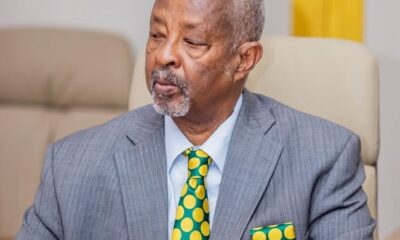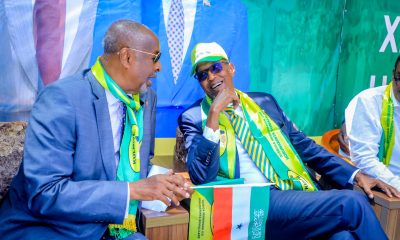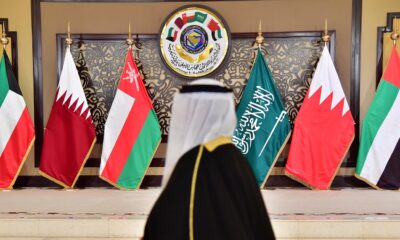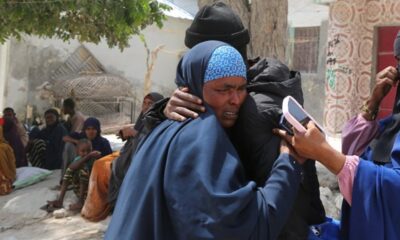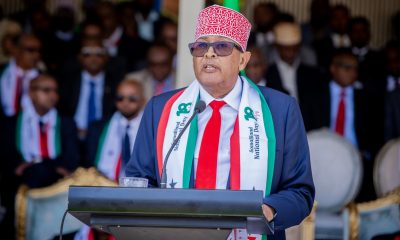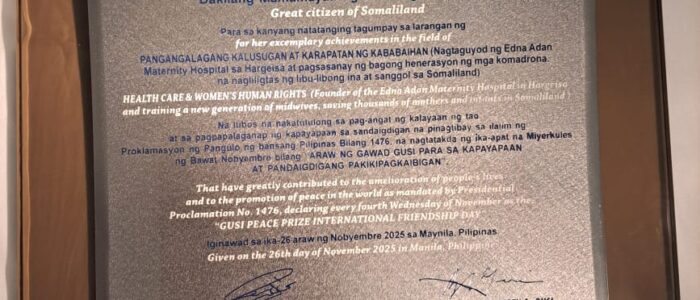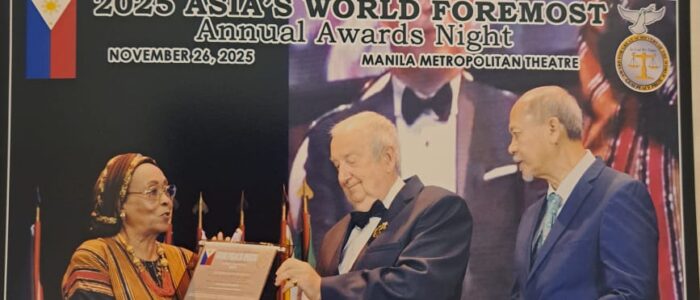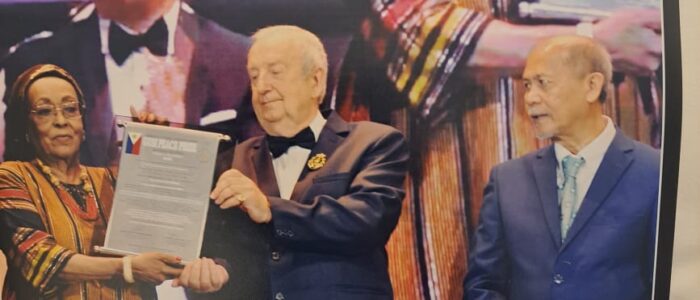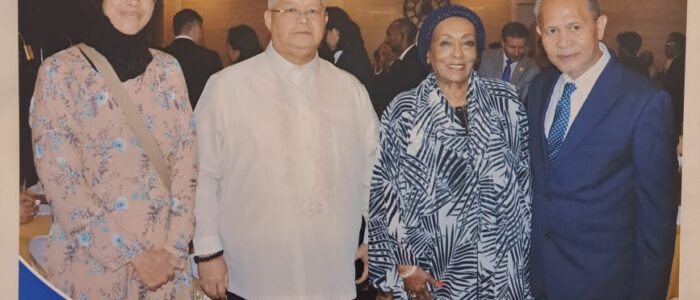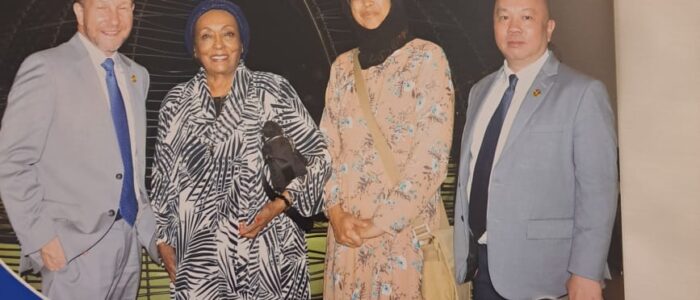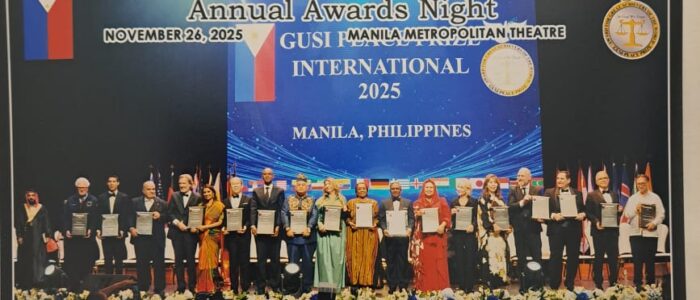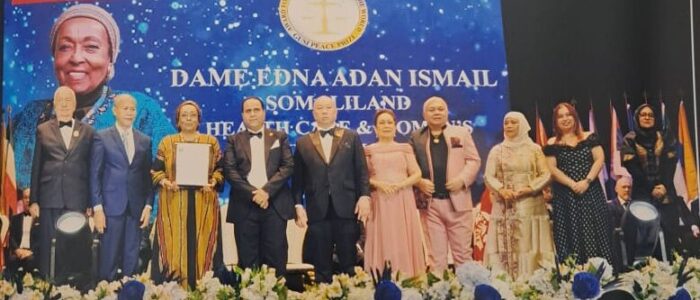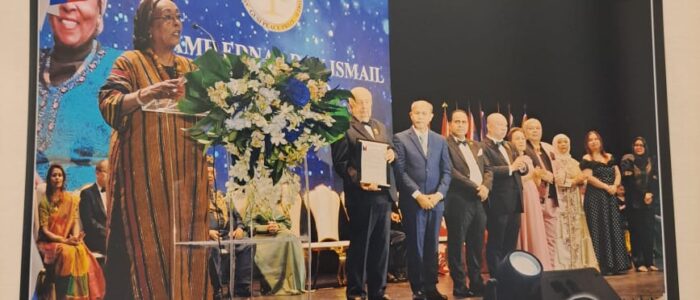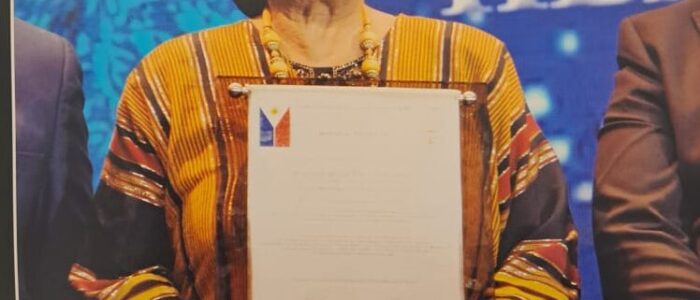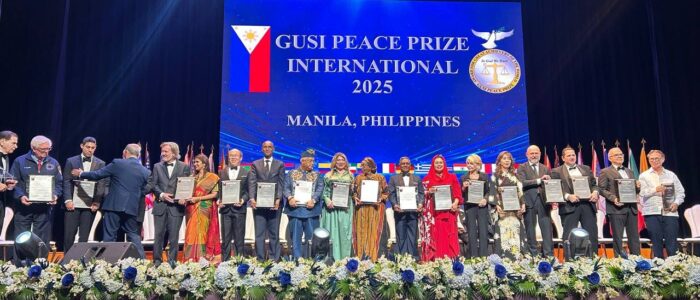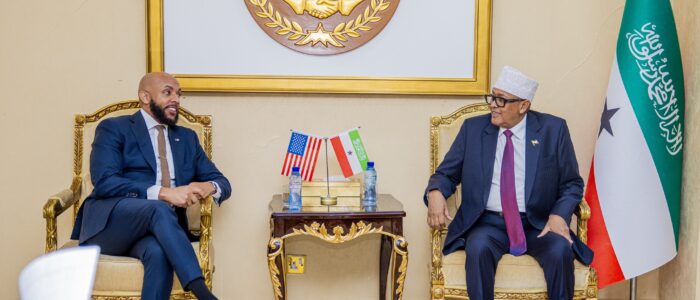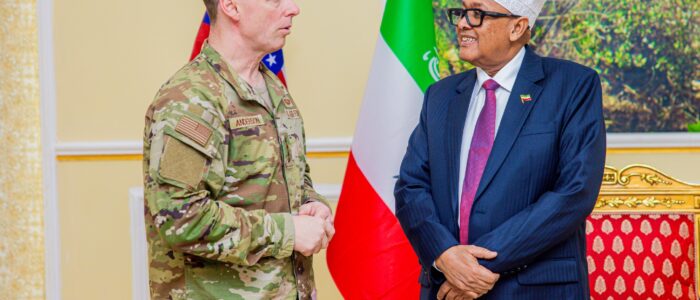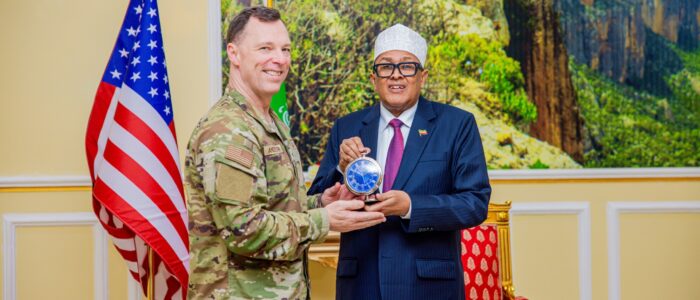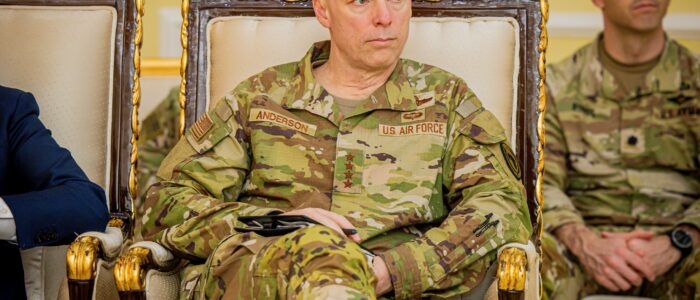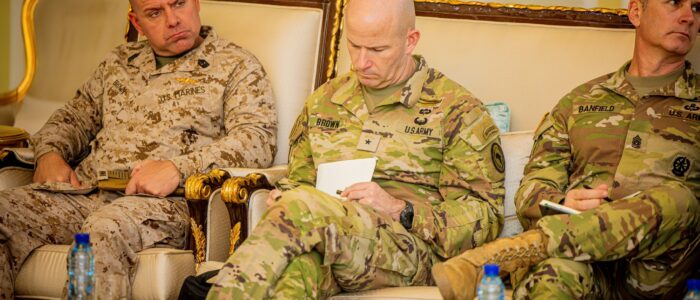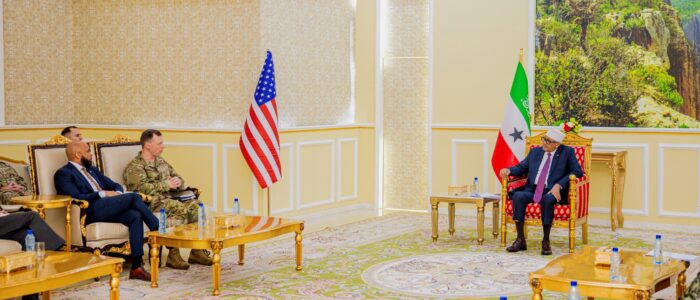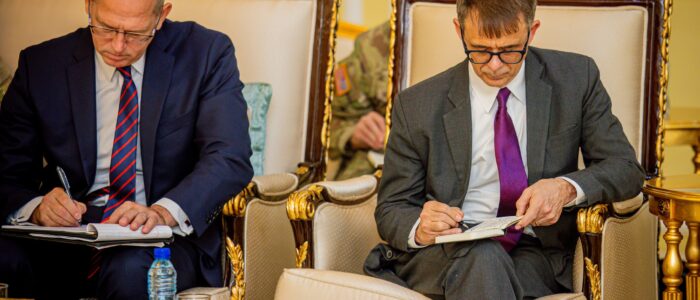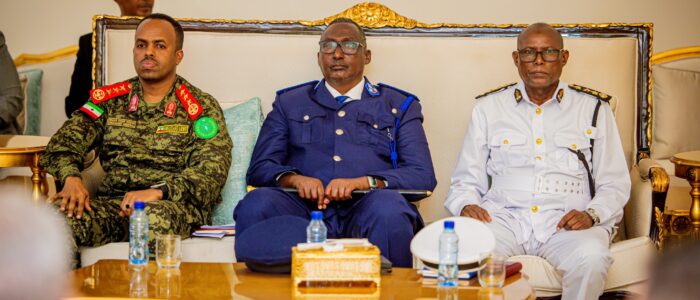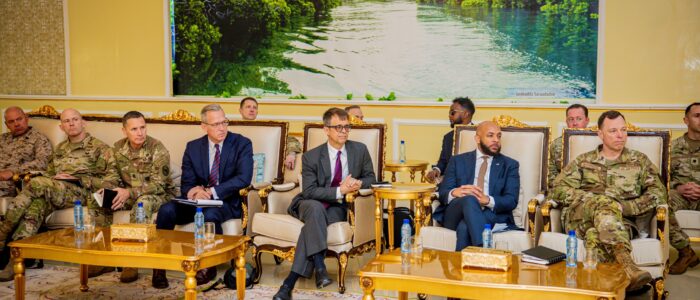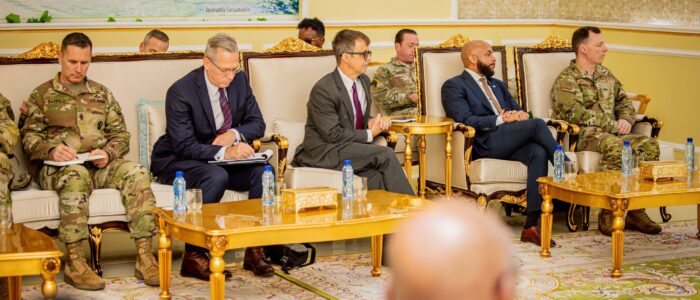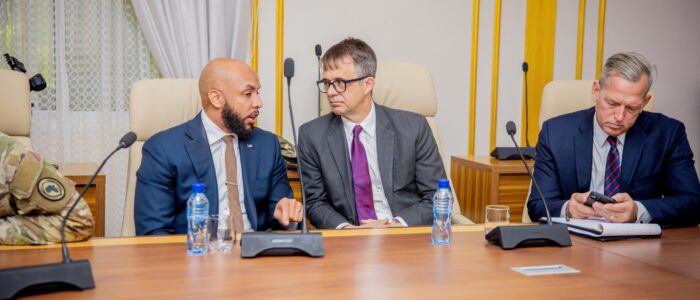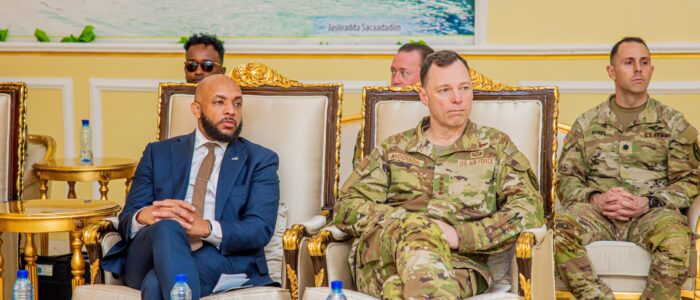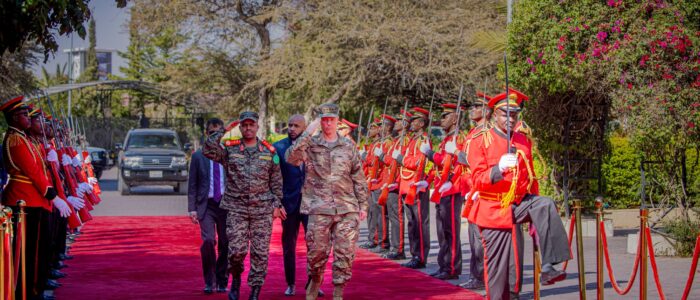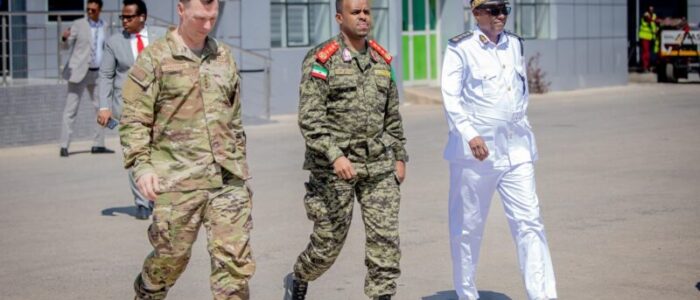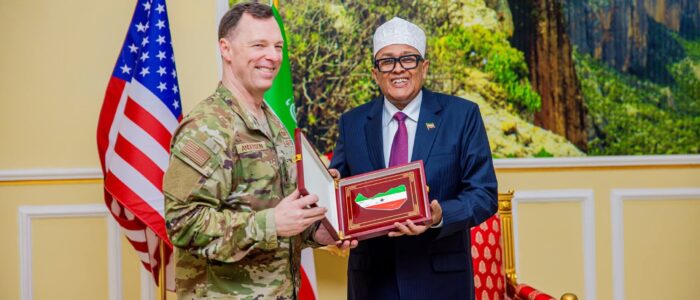Somaliland
Somaliland’s Parties Committee Forces Opposition Kulmiye to Hold Leadership Vote
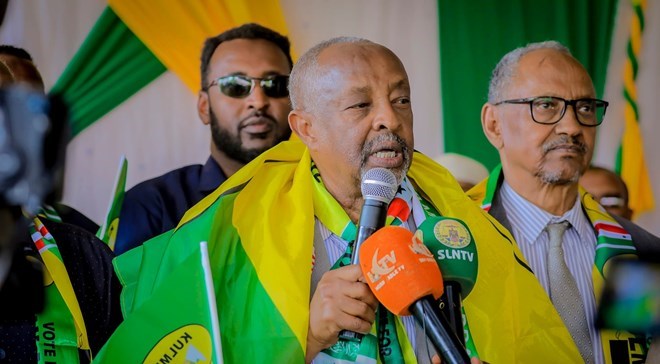
The internal power struggle inside Somaliland’s Kulmiye party has reached a decisive turning point after the Registration and Approval Committee of National Parties and Organizations intervened with a binding ruling that dismantles Chairman Mohamed Kahin Ahmed’s attempt to delay the party congress.
The move marks a rare and forceful assertion of institutional authority—and it lands squarely on the side of reform within an opposition party already under pressure to redefine itself.
The ruling declares that Kahin’s unilateral extension of the congress—justified by claims of a “national disaster”—was illegal.
Under Somaliland’s regulations, only the Kulmiye Central Committee can request an extension, and even then under limited conditions. Kahin’s maneuver fell far outside those boundaries.
More importantly, the committee ordered Kulmiye to set a congress date within 30 days. Should the party fail to comply, the committee will take control of the entire process, from scheduling to execution.
This removes the only weapon Kahin had left: procedural delay. It also restores the internal democratic mechanism needed to resolve the leadership crisis.
For the faction aligned with former President Muse Bihi Abdi—now the dominant force inside Kulmiye’s Central Council—the ruling is a major victory. The party’s grassroots majority has long demanded a congress to elect new leadership. With the institutional blockade eliminated, a new chairman is now virtually assured.
What remains puzzling is why Mohamed Kahin chose to escalate this confrontation in the first place. As Bihi’s Interior Minister for seven years—and a political ally for decades—his decision to defy the party’s base and risk institutional intervention has left observers searching for explanations.
Several theories circulate in Hargeisa’s political corridors. One is the provocative claim that Kahin is being quietly leveraged by the ruling Waddani party, which benefits from a fractured Kulmiye heading into the 2026 electoral cycle.
Another points to sub-clan pressures that have pulled Kahin away from Bihi’s influence. A third frames his resistance as an act of legacy politics—a last stand by an aging power broker seeking to protect his long-held authority.
Regardless of motive, the institutional order has changed the landscape. The congress will happen—either under Kulmiye’s oversight or directly under the national committee. The Bihi-aligned faction’s control of the Central Council ensures they will elect a new leadership team.
That resets the party’s course at a moment when it must urgently unify and prepare itself not as a governing party, but as a credible opposition capable of challenging a ruling Waddani government that is consolidating national power.
The broader significance extends beyond party politics. Somaliland’s institutional system—often criticized for deference to political elites—has demonstrated the ability to enforce procedural integrity even against powerful actors.
For a political environment marked by shifting alliances and deep factional divides, this intervention signals that the country’s democratic architecture retains meaningful authority.
For Kulmiye, however, the work now begins. The party must repair the damage inflicted by months of paralysis, rebuild cohesion, and articulate a vision capable of competing with Waddani’s incumbency.
That effort starts with the congress—and with ending a crisis that had threatened to hollow out the opposition at the most critical moment.
Khadija Ali, Somaliland Senior politics Correspondent
The views expressed in this article are the authors’ own and do not necessarily reflect WARYATV’s editorial policy.
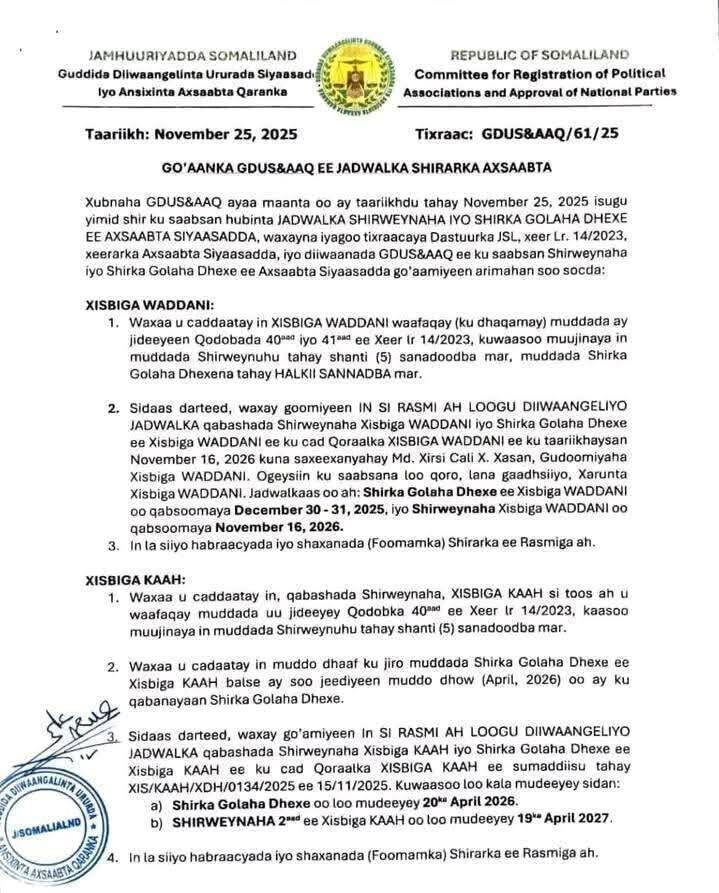
Analysis
Why Somaliland Is a Target of Global Disinformation Campaigns—and Who Is Behind Them

Somaliland Faces a Coordinated Misinformation Assault: Evidence of Foreign Influence Campaigns Emerges.
The daily churn of online debate in Somaliland has begun to reveal something far more consequential than the fleeting noise of social media.
What once looked like ordinary digital conversation has hardened into a battlefield where no armies appear and no shots are fired, yet the damage reaches deeper than any conventional conflict.
Somaliland, like many small and transitional democracies, now sits squarely in the sights of a relentless information war—one designed to fracture trust, poison public discourse, and destabilize political gains at a moment when the country is making unprecedented diplomatic strides.
Under President Abdirahman Mohamed Abdullahi Irro, Somaliland has entered a rare period of international visibility, engaging with Djibouti, Kenya, the UAE, Qatar, and other regional partners in ways that strengthen its claim to recognition.
But progress has also made Somaliland a target. External actors—state-aligned, interest-driven, or opportunistic—have exploited digital platforms to push misinformation, inflame internal tensions, and project the illusion of widespread dissent.
The aim is to create psychological disruption before political disruption: to weaken a rising state by attacking its confidence from within.
A central element of this campaign is the weaponization of diaspora voices. A segment of Somalilanders living in Europe and North America have used geographic distance as a shield, spreading radical rhetoric, financing local unrest, and fueling clan-based hostility with an intensity rarely seen among those who actually live inside Somaliland.
Germany’s investigation into Somali influencers active during the Las Anod conflict—involving individuals who openly boasted about militia activity despite holding no valid asylum status—revealed a deeper security gap.
These actors not only import their conflicts into host countries, but they export new waves of grievance back home, often with devastating effect.
Such influence operations are neither spontaneous nor unique to Somaliland. A 2018 RAND Corporation study analyzing more than 22 million tweets exposed how foreign propaganda networks impersonate local identities to manipulate national conversations.
These networks mimic dialects, humor, and social norms to project manufactured sentiments as if they were authentic public opinion.
For years, versions of this tactic circulated widely in Somaliland’s digital sphere. Accounts posing as locals—writing in colloquial Somali, referencing local grievances—were later revealed through platform geolocation tools to be operating thousands of miles away.
The revelation was less a surprise than a confirmation of what many suspected: a coordinated effort to simulate internal division where none existed.
The objective of such campaigns is rarely to persuade people of a specific lie. It is to erode the very idea of truth. Once the public distrusts all narratives—official, journalistic, or grassroots—the battlefield is won. And in a region shaped by fragile institutions and clan-based political dynamics, the consequences of that fog are immediate and dangerous.
Somaliland’s adversaries have adapted their operations to the country’s changing geopolitical environment. As President Irro accelerates diplomatic outreach, the disinformation directed at him has intensified.
stories, manipulated videos, and coordinated misinformation echo across social platforms moments after major foreign policy announcements. Reliable sources indicate these attacks are not isolated but synchronized by anti-Somaliland factions seeking to undercut the country’s growing legitimacy.
Countering this offensive requires a strategy that extends beyond policing rumors. The government must formally alert host nations to the activities of diaspora actors who use Western legal protections to direct instability back home.
There is precedent: European states—Germany in particular—have begun scrutinizing communities whose online incitement has real-world consequences. Somaliland’s diplomatic corps can and should press for accountability.
At home, the Ministry of Information must confront the foundational weakness that makes these campaigns effective: a population that has never been structurally trained to interrogate what it sees online.
Media literacy is no longer an optional reform; it is a national security imperative. A core curriculum that teaches young people how to assess sources, identify manipulation, and understand algorithmic amplification would do more to defend the country than any reactive press conference.
Public institutions must also communicate faster and more transparently, giving citizens timely, factual information before manufactured narratives fill the void.
Somaliland has not been alone in confronting this landscape. Saudi Arabia, among others, has shown how sustained awareness campaigns and improved verification tools can help societies differentiate real sentiment from engineered outrage.
But Somaliland’s resilience will ultimately depend on individual vigilance—the ability of citizens to pause, question, and examine before sharing the content that adversaries rely on to inflame division.
The digital conflict facing Somaliland is a psychological one: a war against trust, identity, and the fragile sense of shared belonging that sustains any nation.
Its weapons are cheap, its operatives invisible, and its impact profound. Yet its greatest vulnerability remains the informed citizen. No technology—no matter how sophisticated—can substitute for a society that refuses to be manipulated.
Countering the Threat: Hostile Information Campaigns Against Somaliland
Somaliland’s Information War Is a Threat to National Security
Analysis
The Psychology Behind Somaliland’s Most Explosive Political Breakup
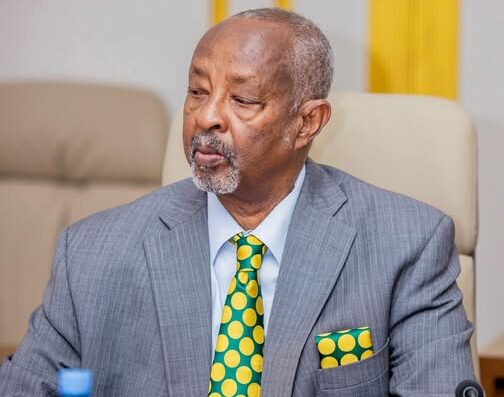
How Praise Triggered Rage: The Psychological Chess Behind Bihi’s Trap — A Friendship Shattered, A Party Divided.
Hargeisa — The dramatic rupture between former President Muse Bihi Abdi and Kulmiye Chairman Mohamed Kahin Ahmed—two men whose political partnership spans the Barre era, the SNM struggle, and the post-war state-building years—has become more than an internal party dispute.
It is a textbook demonstration of how a leader’s greatest strength can harden into his most dangerous vulnerability.
What has unfolded in recent days reveals a familiar political pattern in the Horn of Africa: power brokers who rise through force, endurance, and personal authority often assume their dominance is permanent. In reality, their power is most fragile at the very moment they believe it is absolute.
A Calculated Trigger
Inside Kulmiye circles, many now argue that the confrontation was not spontaneous but a deliberate provocation engineered by Muse Bihi himself. After decades of working side-by-side, Bihi understood Kahin’s psychological architecture better than anyone.
He knew that a direct confrontation would only embolden the Chairman. Instead, Bihi offered public praise—measured, calm, even deferential.
To the public, it sounded conciliatory. To Kahin, it sounded like a challenge.
Unable to leave even a subtle provocation unanswered, Kahin rushed to the cameras and unleashed a blistering, abrasive attack on the man he once called a brother. The outburst shocked the country—its tone, its speed, and the personal venom behind it.
And that, insiders say, was precisely the reaction Bihi anticipated.
Strength That Became Weakness
Mohamed Kahin’s political authority has always been rooted in force: a reputation for toughness, a voice that commands rooms, and the lingering aura of a wartime figure who can intimidate without trying. That image built his career. It also made him the easiest man in Somaliland to provoke.
His hunger for confrontation—once an asset—became a trap.
By taking the bait, he cast himself as the aggressor in a conflict the public did not want. He alienated allies, alarmed neutral figures, and appeared increasingly unhinged at a moment when the party needed calm stewardship. His defining strength—his willingness to fight—became the very trait that isolated him.
The Strategist’s Advantage
Muse Bihi, ever the tactician, emerged from the episode with his political instincts on display. By setting the trap without raising his voice, he shifted the country’s perception of Kahin from veteran statesman to destabilizing force. His strategy reinforced a long-standing truth: the battle is rarely won by the loudest man, but by the one who controls the tempo.
Yet Bihi’s success carries its own peril. His history of sidelining opponents—even long-standing allies—feeds a growing narrative that he trusts no one, values loyalty only when convenient, and views politics as a battlefield to be dominated rather than a system to be shared.
Such mastery can turn into isolation. And isolation, in the Horn of Africa’s political landscape, has destroyed leaders far stronger than him.
A Mirror for Both Men
Somaliland now watches two giants struggle with the consequences of their own identities:
Kahin, undone by the aggression that once made him powerful.
Bihi, strengthened by strategy but endangered by the cold precision of his own methods.
Their feud exposes a broader truth about leadership in Somaliland: the figure who appears unbreakable is often the most predictable, and the most predictable leader is the easiest to defeat.
In the end, the unlocked gate was built not by their enemies, but by the very strengths that carried them to the top.
Somaliland’s Parties Committee Forces Opposition Kulmiye to Hold Leadership Vote
Kulmiye Civil War: Kahin Accuses Bihi of Leading a ‘Coup’ to Oust Him
Somaliland
Edna Adan Wins Asian Nobel Prize for Lifetime of Service
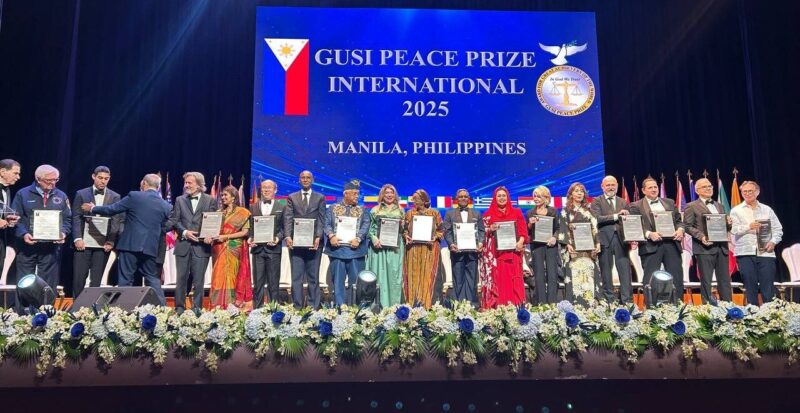
Edna Adan’s Gusi Peace Prize Sparks National Pride, International Visibility for Somaliland.
HARGEISA, Somalia—Dr. Edna Adan Ismail, the internationally respected humanitarian and former foreign minister of Somaliland, has been named one of the 16 recipients of the 2025 Gusi Peace Prize, a distinction widely regarded as Asia’s equivalent of the Nobel Peace Prize.
The award ceremony, held this week in Manila, offered a rare moment of global visibility for Somaliland: Dr. Edna accepted the honor as the Somaliland flag appeared alongside those of recognized states, an image that resonated deeply across the country and throughout the diaspora.
For many Somalilanders, the symbolism carried weight beyond personal achievement.
The certificate, signed by the President of the Philippines, was viewed as an implicit acknowledgment of Somaliland’s long-standing claim to sovereign status, even as formal recognition remains elusive.
Dr. Edna’s global stature has been built over decades of work in maternal health, medical training, and the campaign against female genital mutilation. Her Edna Adan University Hospital in Hargeisa remains one of the most influential health institutions in the Horn of Africa.
The Gusi Prize adds to a long record of international recognition that includes a 2023 Templeton Prize nomination, a 2020 Women Deliver lifetime achievement award, France’s Legion of Honour in 2012, and multiple humanitarian commendations from global institutions.
In Somaliland, the reaction has been one of national celebration. Officials, civil society leaders and ordinary citizens praised her as both a humanitarian icon and an unofficial diplomat who has carried the country’s narrative to the world through her work.
One hospital spokesperson called the moment “a recognition not only of Dr. Edna’s service, but of Somaliland’s resilience and contribution to global peace.”
The Gusi Peace Prize honors individuals who advance peace, human rights and development in their communities. Dr. Edna’s selection underscores her role as one of the region’s most influential advocates for women’s health and education—work that has saved thousands of lives and shaped public policy across the Horn of Africa.
For Somaliland, the ceremony offered a rare but unmistakable moment of visibility: a national flag raised on a global platform, carried by a citizen whose work has long transcended borders.
For supporters of Somaliland’s recognition, it was a reminder that the nation’s strongest diplomacy often arrives not through formal channels, but through the global impact of its most accomplished citizens.
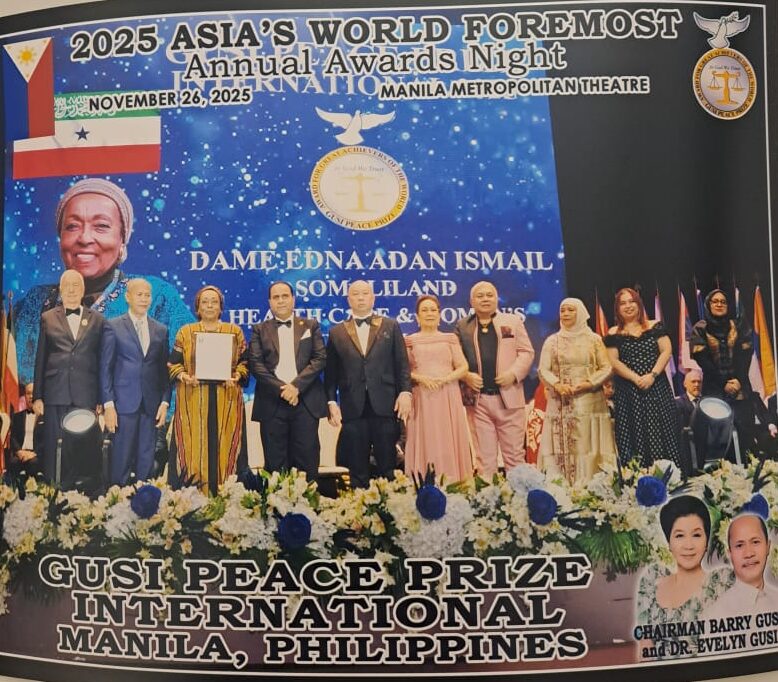
Somaliland
Kulmiye Civil War: Kahin Accuses Bihi of Leading a ‘Coup’ to Oust Him
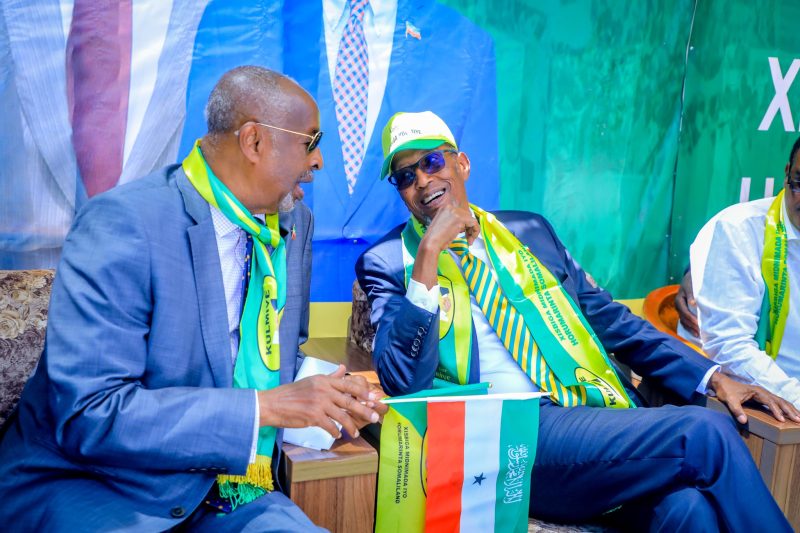
Kulmiye Crisis Explodes: Chairman Kahin Launches All-Out Attack on Muse Bihi.
The recent dual press conferences delivered by former President Muse Bihi and Kulmiye Party Chairman Mohamed Kahin represent a significant and worrying escalation, officially transforming a latent internal feud into an open and acrimonious public war.
The carefully managed ambiguities surrounding the leadership conflict have been violently stripped away, exposing the deep fissures threatening to fracture Somaliland’s opposition party at a critical juncture.
Former President Bihi initiated the public discourse with a gesture of political damage control, deploying a narrative of unity and external manipulation. His insistence that he and Kahin remain friends, coupled with the assertion that “people are creating conflict and running alongside the media,” sought to delegate the blame for the turmoil to unnamed third parties, thereby protecting his own political capital and denying direct involvement.
Crucially, Bihi reinforced his public status as a political retiree, emphasizing his need for rest and distancing himself from any active pursuit of party leadership—a direct counter to any perception that he seeks to challenge the incumbent chairman.
However, Chairman Kahin’s response, delivered barely an hour later, was a calculated and devastating repudiation of Bihi’s conciliatory framing.
Kahin bypassed diplomatic subtlety entirely, launching a frontal verbal assault that named Bihi as the principal antagonist and architect of the internal chaos.
The Chairman’s furious declaration that “Muse Bihi will not lead us in a party of which I am the chairman” re-established a zero-sum boundary of authority. More alarmingly, Kahin escalated the nature of the crisis from a simple power struggle to an institutional threat by accusing the former president of leading a “coup” attempt aimed at installing a puppet chairman.
This accusation is not mere political hyperbole; it is a profound charge that suggests a fundamental breakdown in trust and an existential crisis for the party’s continuity.
The juxtaposed media appearances highlight not only the severity of the institutional schism but also the asymmetry of the political messaging.
Bihi adopted a defensive, measured posture of friendly denial and retirement, while Kahin assumed an offensive, authoritative stance, dominating the airwaves with a long, unchallenged narrative.
The failure of journalists to press Kahin on his severe criticisms of the former president, contrasting with the critical question posed to Bihi regarding his supposed retirement, suggests a careful, or perhaps influenced, management of the narrative flow, allowing the incumbent chairman’s accusations to stand without immediate scrutiny.
This dynamic complicates the public’s ability to discern the truth and risks further polarizing political discourse.
The dispute is now beyond reconciliation through internal mediation; it is a high-stakes, direct confrontation between two of the nation’s most powerful figures, placing the stability and electoral viability of the Kulmiye party at a difficult and dangerously uncertain point.
Somaliland
AFRICOM’s Hargeisa Mission Confirms What Washington Won’t Say Out Loud
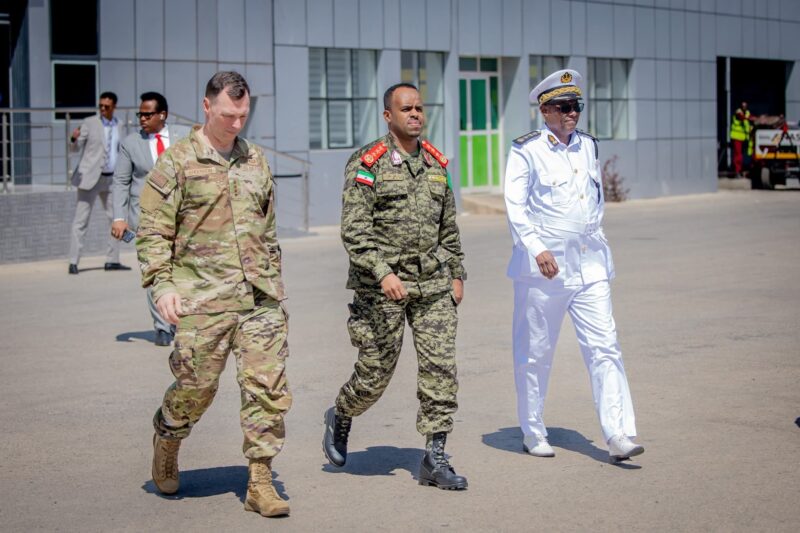
The Moment Somaliland Became Indispensable to U.S. Power in the Red Sea.
The visit to Hargeisa by U.S. Africa Command chief Gen. Dagvin Anderson and Deputy Chief of Mission Justin Davis was more than a routine engagement.
It marked a quiet but unmistakable shift in how Washington now views Somaliland: not as an isolated, unrecognized polity, but as a strategic actor at the center of a widening contest for influence across the Red Sea corridor.
For three decades, Somaliland has positioned itself as one of the region’s few credible sources of stability. Its elections, security institutions and territorial control stand in stark contrast to the fractured landscape elsewhere in the Horn.
That record is increasingly difficult for U.S. officials to ignore, especially as instability expands across the Gulf of Aden and great-power competition intensifies to the Bab el-Mandeb.
President Abdirahman Mohamed Abdullahi pressed this case directly, detailing Somaliland’s long-standing commitment to securing its borders, countering extremist networks and maintaining the safety of international sea lanes.
Those points align closely with AFRICOM’s priorities. Gen. Anderson’s public acknowledgment that Somaliland occupies “a strategic location that is important for the overall security of the Red Sea and the Horn of Africa” was, in effect, a statement of strategic recalibration.
The delegation’s tour of Berbera International Port and the surrounding coastal infrastructure underscored that recalibration. Berbera is no longer viewed simply as a commercial hub; it has become one of the few viable deep-water assets in the region that is politically stable, logistically reliable and insulated from the competing security pressures that complicate operations elsewhere.
For U.S. planners wary the Red Sea crisis tighten global shipping routes—Berbera presents both an alternative and an opportunity.
Washington’s praise for Somaliland’s port management and expanding infrastructure signaled not only confidence but intent. Modern military logistics rely on predictable partners, and Somaliland has quietly become one of the most predictable in the region.
President Abdullahi’s assertion that U.S. strategic interests in East Africa are “firmly rooted in the recognition of Somaliland” reflects a larger truth shaping the discussions.
The United States is already engaging Somaliland in ways typically reserved for recognized governments: security cooperation, capacity-building programs, and high-level coordination on counterterrorism and maritime protection.
The absence of formal diplomatic recognition now appears less a barrier than an outdated policy assumption that no longer matches U.S. operational realities.
Deputy Ambassador Davis’s commitment to deepen security cooperation and strengthen Somaliland’s institutions reinforces this trajectory. Each new layer of engagement builds what is, in practice, a bilateral security relationship—even as the formal diplomatic architecture lags behind.
The strategic logic is becoming increasingly difficult to dismiss. A reliable partner along the Red Sea, free from foreign basing rivalries and internal turmoil, is rare.
In a region where U.S. influence is tested by China, Iran’s expanding militia networks, and rising instability from Sudan to Yemen, Somaliland offers a stable platform—militarily, politically, and geographically.
As the United States widens its focus on maritime security and great-power competition, the question is no longer whether Somaliland fits into U.S. strategy.
It is whether Washington will eventually acknowledge a reality its security institutions have already begun to accept: that Somaliland is functioning as a partner in all but name, and that recognition—once viewed as a distant political debate—now sits on the horizon as a strategic inevitability.
Somaliland
Inside the High-Risk Battle Over Kulmiye’s Future

Kulmiye in Crisis: The Vote One Side Can’t Hold — and the Other Can’t Survive.
The internal confrontation gripping Somaliland’s Kulmiye party has evolved into a defining struggle over who controls the movement’s future — and whether the party can function at all ahead of the 2026 elections.
What appears on the surface to be a dispute between Chairman Mohamed Kahin Ahmed and the faction aligned with former President Muse Bihi is, in reality, a deeper conflict between two competing sources of political legitimacy: institutional authority and democratic mandate.
Information circulating within party circles paints a picture of a movement split into two powerful blocs. On one side is Kahin’s faction, which controls the party’s legal machinery.
As the sitting chairman, Kahin holds the administrative levers — the finances, the official stamp, the procedural calendar, and crucially, the authority to convene the party congress.
This gives his group a protective shield. Their strategy rests on slowing or indefinitely delaying the congress, because the moment they call it, they open the door to a vote they are almost certain to lose. Their power is real but defensive, rooted in paperwork rather than enthusiasm on the ground.
On the other side sits the faction backed by the Central Council — the party’s core voting body. This bloc claims the political mandate. They have the numbers, the backing of most delegates, and the legitimacy of representing the party’s majority. Their entire strategy hinges on one act: forcing the congress to take place.
If it is held, their victory is almost guaranteed. But they cannot legally call it themselves. They are trapped in a position where they hold the votes but lack the mechanism to activate them.
That deadlock has created a high-stakes standoff. Kahin’s refusal to convene the congress is not merely obstruction; it is self-preservation. Calling the meeting would almost certainly end his tenure. But the Bihi-aligned faction’s inability to compel that meeting means their majority remains inert.
Neither side can move decisively without inflicting severe damage on the party’s internal legitimacy.
The risk is that the standoff produces a constitutional crisis inside the party. If the majority faction eventually organizes a rival congress without Kahin’s authorization, the result could be two competing chairmen: one legally recognized but lacking political backing, and another politically dominant but procedurally questionable.
Such a split would leave Kulmiye fractured at the very moment its rivals are consolidating ahead of 2026.
The implications extend beyond Kulmiye itself. A opposition party trapped in internal paralysis forfeits valuable political time, leaving Waddani and KAAH to define the national narrative without meaningful resistance.
The spectacle of a former governing party unable to enforce its own rules weakens public trust in Somaliland’s political system, particularly at a time when the country continues to argue for international recognition and institutional maturity.
The stalemate will not resolve itself. With neither side willing to concede and both fearing the political consequences of retreat, the conflict is likely to spill outside formal party structures.
Respected elders, business elites, or national institutions may eventually be asked to intervene — not to decide a winner, but to prevent the ruling party from tearing itself apart.
Until a neutral arbiter forces a path forward, Kulmiye will remain suspended between legality and legitimacy, with its future — and the shape of Somaliland’s next political chapter — hanging on a congress that one side cannot afford to hold and the other cannot afford to live without.
Somaliland
Somaliland-UK Relations Advance with New Commitments on Stability and Growth
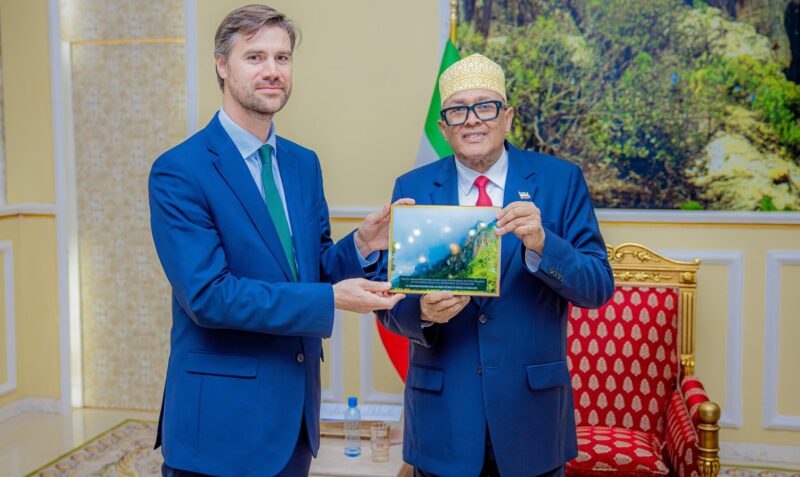
Somaliland President, UK Ambassador Hold High-Level Talks on Security, Development and Strategic Ties.
Somaliland President Abdirahman Mohamed Abdullahi hosted the United Kingdom’s ambassador, Charles King, and a senior British delegation in Hargeisa on Monday, in a meeting that underscored the depth of historic ties and the renewed push to strengthen bilateral cooperation.
The talks, held at the Presidential Palace and attended by Somaliland ministers and top government officials, focused on security, infrastructure development and private-sector growth—areas where the president said the UK has long played a stabilizing role.
President Abdullahi expressed strong appreciation for what he described as “historic trust and close cooperation” between Somaliland and the United Kingdom.
He emphasized that British support for security sector reform and infrastructure projects has been essential to Somaliland’s stability, and said his administration is committed to deepening the partnership.
Calling the UK a “close friend” that has consistently backed Somaliland’s development and peacebuilding efforts, the president highlighted progress in security consolidation, including the recent peace agreement in Erigavo and ongoing stabilization across the eastern regions.
Ambassador King reaffirmed the UK’s commitment to Somaliland, praising the country’s record of stability, democratic governance and peaceful political transitions.
He noted that Somaliland’s security environment and its track record of holding competitive elections distinguish it in a volatile region.
King also urged Somaliland to continue expanding opportunities for private investment, calling it a critical driver of economic growth and long-term prosperity.
Officials said the meeting concluded with a joint commitment to strengthen cooperation across security, development and economic sectors, reflecting what both sides describe as a long-standing and mutually beneficial relationship.
Somaliland
Somaliland Seeks Special Status from EU in High-Level Meeting with Ambassador

Somaliland President Presses EU for Special Partnership, Citing Security Gains and Sovereignty.
Somaliland President Abdirahman Mohamed Abdullahi hosted the European Union’s ambassador to Somalia, Francesca Di Mauro, and a high-level delegation at the Presidential Palace, using the meeting to underscore his government’s push for stability, institutional reform and international recognition.
According to officials in Hargeisa, the president briefed the delegation on what he described as significant progress in securing the country’s internal cohesion.
He highlighted the formal nationalization and regulation of more than 6,000 civilian fighters and their weapons—an effort he noted Somaliland undertook without foreign assistance.
He also pointed to the resolution of the Ceel-Afweyn conflict and recent reconciliation forums in Erigavo, which he framed as evidence of a government-led strategy to reinforce social unity through dialogue rather than force.
The president urged the EU to deepen its support, arguing that Somaliland’s political stability and democratic continuity over the past three decades merit greater engagement.
He pressed Ambassador Di Mauro on the importance of recognizing Somaliland’s territorial, airspace and maritime sovereignty and called for the EU to adopt a “special arrangement” that allocates development funds directly to Somaliland rather than through broader federal frameworks.
Abdullahi said his administration remains committed to strengthening security and social cohesion and emphasized that peace initiatives remain a central pillar of his agenda.
He told the EU delegation that enhanced cooperation—especially on governance, stabilization and development programming—would serve the broader interests of the Horn of Africa.
Ambassador Di Mauro commended the government’s early achievements, saying the EU views Somaliland’s stability, democratic processes and peaceful political environment as valuable assets in a volatile region. She signaled Brussels’ willingness to expand cooperation in security, governance and social development.
Officials said the meeting ended with agreement to accelerate bilateral engagement aimed at supporting peace, development and regional security.
-
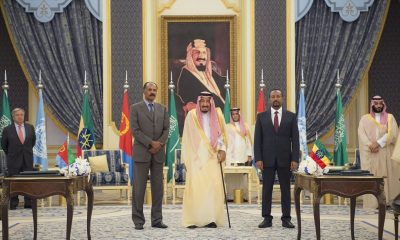
 Analysis9 months ago
Analysis9 months agoSaudi Arabia’s Billion-Dollar Bid for Eritrea’s Assab Port
-
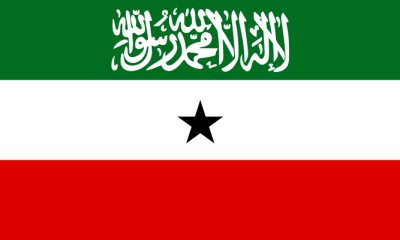
 Opinion17 years ago
Opinion17 years agoSomaliland Needs a Paradigm Change: Now or Never!
-
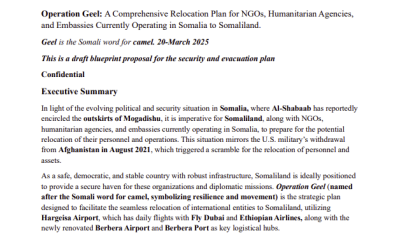
 ASSESSMENTS8 months ago
ASSESSMENTS8 months agoOperation Geel Exposes the Truth: International Community’s Reluctance to Embrace Somaliland as a Strategic Ally
-
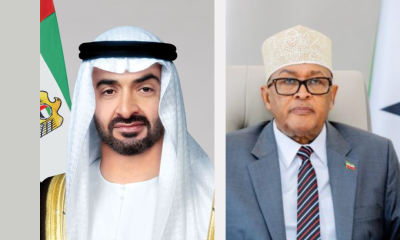
 Somaliland10 months ago
Somaliland10 months agoSomaliland and UAE Elevate Ties to Comprehensive Strategic Partnership
-

 Africa2 years ago
Africa2 years agoHow Somaliland Could Lead the Global Camel Milk Industry
-

 Analysis7 months ago
Analysis7 months agoFrom Cell to Summit: The Prisoner Who Became Syria’s President
-
Analysis8 months ago
How an Israeli Strike on Iran’s Nuclear Program Could Play Out
-
Analysis2 years ago
Iran escalates conflict, attacking Israel; US forces help Israel to intercept Iranian projectiles




